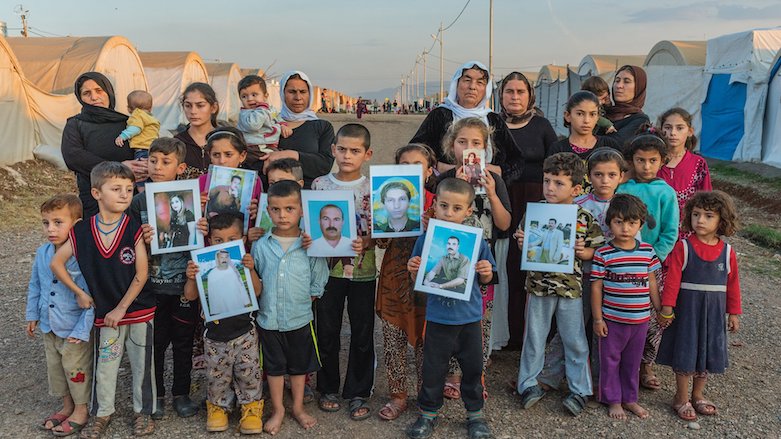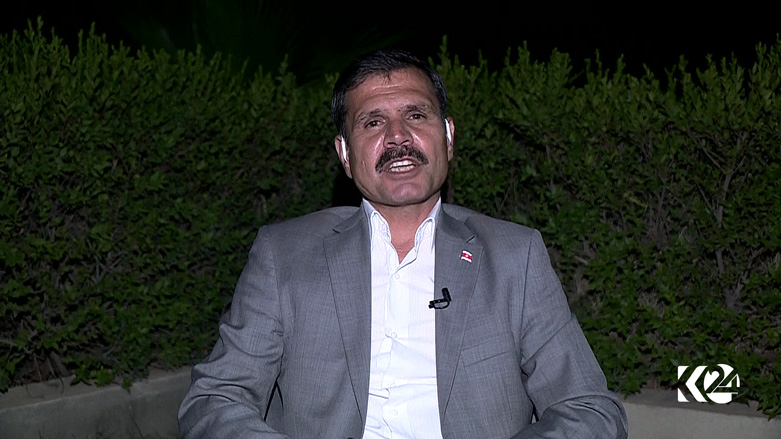IS may fall but genocide against Ezidis will never be forgotten

ERBIL, Kurdistan Region (Kurdistan 24) – While the Islamic State (IS) continues to shrink in Iraq and Syria, the jihadist group's crimes do not go unforgotten, particularly the genocide committed against the Yezidis (Ezidis) in northern Iraq.
On Aug. 3, people in the Kurdistan Region commemorate the anniversary of the fall of Sinjar (Shingal) at the hands of the jihadist militants.
Three years ago, IS launched a genocidal campaign against Ezidis in Sinjar (Shingal) carrying out mass executions, kidnappings, and rape.
Nearly 5,000 Ezidi men were killed while thousands of children and women were taken into captivity.
According to accounts from victims who managed to escape with their lives, IS created a slaver's market where they would sell the women as sex-slaves.
The extremist group’s attack on the Ezidis in August 2014 sparked the start of the US-led coalition air campaign in Iraq to support Kurdish Peshmerga forces advancing on the ground.
Shingal was successfully liberated from IS three months later when Peshmerga forces declared victory in November 2014.
Thursday marks the third anniversary of the genocide committed by the militant group. Many Ezidis, however, are still suffering from the crimes IS committed.
Speaking to Kurdistan 24 at the Sharya Camp in Dohuk in the Kurdistan Region, a woman recounted the moment her family was taken from their home by IS militants.
“IS kidnaped my children and husband,” she said. “I only wish to see them again.”
The elderly Ezidi woman said she was still suffering from a back injury she incurred when she leaped in front of an IS van driving away with her family.
“When the militants kidnapped my family, I jumped in front of the van to try and stop them,” she explained.
Ezidis are a religious minority in Iraq who combine elements of Islam, Zoroastrianism, and Christianity in their beliefs.
They have repeatedly been persecuted by former Iraqi governments, but the ongoing genocide committed by IS is one of the worst in their history. Few families have been able to return to their homes in Shingal region.
According to the United Nations High Commissioner for Human Rights, over 1,600 women and girls remain in IS captivity while nearly 1,700 men and boys remain missing.
Moreover, security forces are still uncovering mass graves, especially in Shingal where at least 44 were discovered.
Editing by G.H. Renaud



